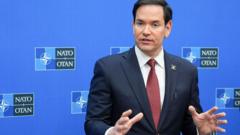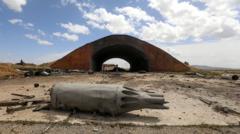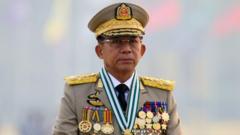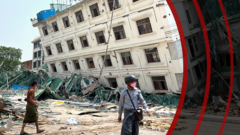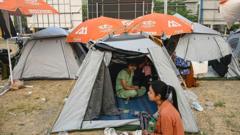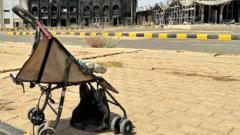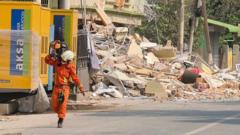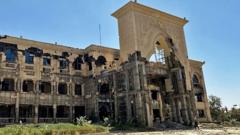Henry Hamra's poignant journey back to his Syrian roots reveals both a longing for cultural heritage and the challenges posed by sanctions on a nation in recovery.
# A New Dawn for Syria: Jewish Community Seeks Sanctions Relief

# A New Dawn for Syria: Jewish Community Seeks Sanctions Relief
A Syrian Jewish delegation advocates for lifting sanctions to help rebuild a war-torn Syria while navigating mixed reactions from the Jewish diaspora.
In a remarkable turn of events following Syria's civil war, Henry Hamra, a Syrian Jew who emigrated over three decades ago, has returned to his homeland, finding both hope and despair. Alongside his father, Rabbi Yosef Hamra, they were welcomed by Syria’s new leadership under President Ahmed al-Shara, a former insurgent with a controversial history, to visit sites of deep cultural importance to the Jewish community.
During this visit, however, the devastation wrought by fourteen years of conflict was undeniable. Hamra's sentiments echoed throughout the visit; many historical Jewish locations, such as the Jobar synagogue and a revered cemetery, lie in ruins or have been irreparably damaged. Faced with the remnants of a rich past, Henry's aspirations turned towards the future, which he believes hinges on the lifting of economic sanctions imposed by the United States and other foreign powers.
The Hamras have joined forces with Syrian American advocacy groups to push for this relief, having once rallied against the regime of Bashar al-Assad. Their dual role as advocates and cultural ambassadors is both strategic and heartfelt as they navigate the complex landscape of U.S. foreign policy toward Syria.
However, opinions vary widely among advocacy groups. Prominent organizations like the American Israel Public Affairs Committee (AIPAC) express caution, emphasizing that any alteration in U.S. policy must come only after notable improvements in governance and behavior by the new Syrian administration.
For the Hamras, the desire to see Syria flourish again clashes with the intricate realities of geopolitics and community sentiments, rendering their advocacy a delicate balance of hope and skepticism in a transitional landscape.



